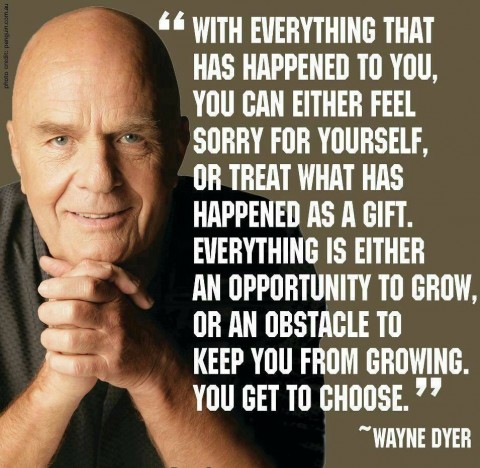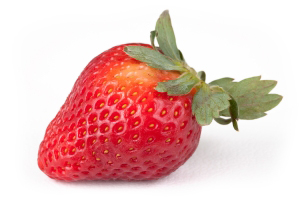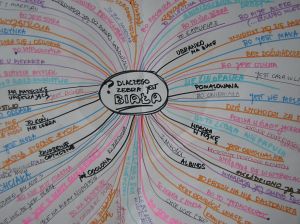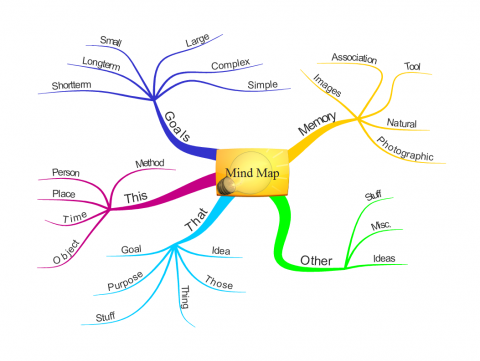While there are many “Top 10” lists out there, this is a list I have compiled based on years of literature review and firsthand experience in clinical neurological practice. While no list is ever complete and priorities and orders of importance change with the literature and time; these are, in my opinion, the top 10 ways you can help your brain perform at its maximum potential…in no particular order. While we offer many advanced applications for boosting brain performance, these are tools that every one of us has at our disposal and can begin to implement immediately.
1) Get plenty of sleep – While there is no definitive number of hours proven to be the best for humans, it is suggested by most experts that a minimum of 7 hours of uninterrupted sleep be observed by most. Care should be taken to remove any barriers to achieving and maintaining sleep from the bedroom (i.e. TVs, computers, excess light, poor quality/old beds, etc.). Among other things, memories are formed when we sleep and improved quality and duration of sleep can stave off cognitive decline due to aging. Click here for a New York Times article on impaired sleep and memory decline.
2) Manage your stress – Stress, namely the long-term continuous stressors many of us face on a day to day basis (e.g. jobs, relationships, traffic, finances, etc.), and the ill-effects it brings on are touted as the root cause of the majority of chronic diseases of our modern society. There are countless techniques available to us to help us manage stress including meditation, journaling, counseling, prayer, yoga, NLP, Tai Chi, etc., and they all have their distinct advantages with regard to helping our brains perform better. The majority of the research on stress reduction and the brain has been done in the area of meditation. Click here for a link to a great book written on meditation and its amazing impact on brain function.
3) Exercise – We all know we should do it and we need to ‘Make the Time’ instead of trying to ‘Find the Time’. The evidence is irrefutable; exercise makes your brain work better…period! From increased blood flow carrying oxygen and nutrients to our ‘Greedy Master’, to production of chemicals that help us connect nerve cells and even grow new ones; we all need to exercise. Click here for a link to my blog post on a phenomenal book that will teach you everything you want to know about this subject.
4) Drink plenty of WATER – Notice the word water is capitalized! While the occasional naturally flavored drink of your choice is fine, water should be your main source of hydration as it will eliminate intake of sugars, sugar substitutes, artificial flavors/colors, etc. that can all be harmful to your brain. Our bodies are made up of roughly 60% water content and our brains are even higher at upwards of 70-80%. General recommendations for intake are currently accepted by many to be 1/2 of your body weight in oz. of water per day (e.g. 140 lbs = 70 oz.).
5) Eat the right kind of fat – Another area where our brain requires more, and the right kind of, raw materials is fat consumption. Under normal circumstances our bodies are comprised 20-25% fat and our brains approximately 60%. While I am unable to get into the biochemistry of fats in this limited space, adhering to a few simple rules can help get you off to a good start. Avoid at all costs processed, man-made fats that fall under the general heading of ‘Trans Fats’. These are dangerous for our brains and bodies in so many ways, many of which we do not even know yet. Also, minimizing saturated fat intake is advisable for most (e.g. red meats, butters, etc.). Poly and monounsaturated fats found in whole food sources (nuts, vegetable oils, greens, etc.) and omega-3 fatty acids found in fish and other whole food sources are desirable for a better brain. Click here for a recent article on fats and your brain.
6) Learn something new – Exercise for your brain! Learning new subjects, skills and hobbies can help to preserve and build your brain’s resources to ensure it functions at its highest ability as we move through this journey of life. Novel stimulation has been shown to enhance brain activity immeasurably; whereas routine, monotonous type behaviors will likely ensure a slow, steady decline in cognitive function over time. Google ‘Learning and the Brain’ and sift through the 132 million results for some light reading to begin the process of learning and remember…We are NEVER too old to learn!
7) Eat your fruits and veggies – The benefits of REAL/WHOLE foods in our diets is endless, especially fruits and vegetables. They are low-calorie and loaded with vitamins, minerals, antioxidants, good sugars and fiber; which are all good for our brain. So many of our foods are far from their original source, so begin to learn (which is also good for your brain) about the dangers of processed and genetically modified foods and you will begin to develop an appreciation for fresh, whole foods that power your brain much more efficiently!
8) Be social – Much to my dismay this tip is often left off of many “Top 10” brain health lists and could quite possibly be one of the most important factors for a brain to be able to survive and thrive! Numerous studies over the past 100 years have shown how social isolation can cause significant psychological and neurological impairment, and even death in extreme cases. Social isolation disrupts myelin production, which is critical for nerve signaling and transmission. Volunteer, join a book club or service organization, take a class, walk the neighborhood and talk to your neighbors…put yourself out there – your brain will thank you! Click here to read more on social isolation and decreased myelin production.
9) Eliminate bad habits – Drinking, smoking, laziness, poor diet, worry, anger, sedentary behavior, dangerous physical activities, etc…Need I say more?
10) Set goals and move towards them – Our brain’s ‘reward system’ is intimately linked to our older emotional (limbic) brain on one end, and our newer cognitive (cortical) brain on the other. That said, to help balance and improve function in either of these regions, exercising our reward system is a critical step in the process. Further, the neurotransmitter dopamine is a key player in this system and it is increased with repetitive utilization of this system (this is the same neurotransmitter in short supply in conditions like Parkinson’s!). Goals must be realistic and attainable, but also strong enough to stretch our mental capacities for optimal benefit!
~Please enjoy, feel free to comment, share with others; and, most importantly, put these to good use!~


 Ever hear the saying, “Don’t cry over spilled milk?” It means a lot more than may be initially apparent. Often times, people beat themselves up over insignificant mistakes or shortcomings. Sometimes people have a single seemingly negative experience that causes them to form a limiting belief about themselves or the world which hinders their success. These people often appear bitter, jaded or insecure. All it takes is a small shift in thinking to transform their lives. One might tell themselves, “I’m so clumsy! I can’t do anything right.” or they can simply clean the mess and have more positive self-talk like, “It’s okay. That milk was probably going sour anyway.”
Ever hear the saying, “Don’t cry over spilled milk?” It means a lot more than may be initially apparent. Often times, people beat themselves up over insignificant mistakes or shortcomings. Sometimes people have a single seemingly negative experience that causes them to form a limiting belief about themselves or the world which hinders their success. These people often appear bitter, jaded or insecure. All it takes is a small shift in thinking to transform their lives. One might tell themselves, “I’m so clumsy! I can’t do anything right.” or they can simply clean the mess and have more positive self-talk like, “It’s okay. That milk was probably going sour anyway.” Focus on becoming aware of any negative belief patterns that surface in various situations, and take time to remember the earliest event that triggered you to think that way. Then, you can look for evidence to disprove the negative beliefs. For example, if you think you’re too fat to get a girlfriend, look for examples of fat men who have girlfriends. The more you prove to yourself that your fears are irrational, the easier it will be to switch to a more confident mindset.
Focus on becoming aware of any negative belief patterns that surface in various situations, and take time to remember the earliest event that triggered you to think that way. Then, you can look for evidence to disprove the negative beliefs. For example, if you think you’re too fat to get a girlfriend, look for examples of fat men who have girlfriends. The more you prove to yourself that your fears are irrational, the easier it will be to switch to a more confident mindset.

 We can dream, wish, set goals, and talk about what we’re going to do all we want, but we won’t see much result until we start doing the work required. When we find ourselves procrastinating doing the work required to achieve our goals, we can simply make a promise to do something fun and reward ourselves once we’ve completed the task at hand. Whether it be relaxing, eating something delicious, gifting ourselves a present, making more time for our hobbies, or going on adventures. When we do this, we create extrinsic motivation by finding healthy ways to treat ourselves for accomplishing what we set out to do and being the awesome human beings that we are. Follow-through is everything.
We can dream, wish, set goals, and talk about what we’re going to do all we want, but we won’t see much result until we start doing the work required. When we find ourselves procrastinating doing the work required to achieve our goals, we can simply make a promise to do something fun and reward ourselves once we’ve completed the task at hand. Whether it be relaxing, eating something delicious, gifting ourselves a present, making more time for our hobbies, or going on adventures. When we do this, we create extrinsic motivation by finding healthy ways to treat ourselves for accomplishing what we set out to do and being the awesome human beings that we are. Follow-through is everything.
 Proper nourishment and getting regular exercise are key ingredients to happiness. When we have a clear head from eating nutrient rich/plant based foods, inspiration and motivation will come naturally. If we’re loaded up with unhealthy fast foods, processed foods, high levels of sugar, and harmful fats then we will feel sluggish and depressed which will affect our motivation. Getting exercise raises the endorphin levels and produces a natural state of well-being. From this place, we are more connected to our source, and expressing ourselves creatively and enjoying life to the fullest becomes effortless.
Proper nourishment and getting regular exercise are key ingredients to happiness. When we have a clear head from eating nutrient rich/plant based foods, inspiration and motivation will come naturally. If we’re loaded up with unhealthy fast foods, processed foods, high levels of sugar, and harmful fats then we will feel sluggish and depressed which will affect our motivation. Getting exercise raises the endorphin levels and produces a natural state of well-being. From this place, we are more connected to our source, and expressing ourselves creatively and enjoying life to the fullest becomes effortless. Make lists about all the things you love and give thanks for. The more we stay in a state of love and appreciation, the easier it will be to think positively and keep moving in the right direction throughout our day and life. It only takes a few negative thoughts in a row to trigger a fight-or-flight response thus pumping our bodies full of stress chemicals. Stress has be proven to inhibit digestion, sex drive, and other body functions. The good news is that we can train our minds to break the cycle of negativity. We can choose not to sweat the small stuff. The more we stay in the space of love and gratitude, the more we are training not only our minds but also our feelings to respond to the situations in our lives differently. Being loving and grateful is one of the best things we can do to stay on purpose and increase motivation.
Make lists about all the things you love and give thanks for. The more we stay in a state of love and appreciation, the easier it will be to think positively and keep moving in the right direction throughout our day and life. It only takes a few negative thoughts in a row to trigger a fight-or-flight response thus pumping our bodies full of stress chemicals. Stress has be proven to inhibit digestion, sex drive, and other body functions. The good news is that we can train our minds to break the cycle of negativity. We can choose not to sweat the small stuff. The more we stay in the space of love and gratitude, the more we are training not only our minds but also our feelings to respond to the situations in our lives differently. Being loving and grateful is one of the best things we can do to stay on purpose and increase motivation. Having your dreams and goals represented visually can help you stay focused on achieving them.
Having your dreams and goals represented visually can help you stay focused on achieving them. By making a commitment to write out our thoughts even if they’re negative, we allow yourself to vent. Noticing the patterns that we see can be an invaluable aid in releasing blockages. Sometimes just by writing down our objections, we solve our own problems. Try making a list of everything negative, and reading it back in the positive. We don’t have to believe it, but over time it will retrain our minds to avoid going into fight-or-flight response.
By making a commitment to write out our thoughts even if they’re negative, we allow yourself to vent. Noticing the patterns that we see can be an invaluable aid in releasing blockages. Sometimes just by writing down our objections, we solve our own problems. Try making a list of everything negative, and reading it back in the positive. We don’t have to believe it, but over time it will retrain our minds to avoid going into fight-or-flight response. Sometimes we can feel like we’re just stuck in a routine, the the truth is that we are. Make time to learn new things. Without new tools to use in our lives, we are limited to where we’re at. Growing, learning, discovering new information, and improving ourselves, we can gain new insights to achieve our goals and live an inspired life. Listen to speakers, read books, research online, watch movies, take classes, go out and get real life experience.
Sometimes we can feel like we’re just stuck in a routine, the the truth is that we are. Make time to learn new things. Without new tools to use in our lives, we are limited to where we’re at. Growing, learning, discovering new information, and improving ourselves, we can gain new insights to achieve our goals and live an inspired life. Listen to speakers, read books, research online, watch movies, take classes, go out and get real life experience.


 “Happiness will never come to those who fail to appreciate what they already have.”
“Happiness will never come to those who fail to appreciate what they already have.”
 Depression is a condition that currently affects many Americans and if you are one of them you know how hard it can be just to get through the day sometimes. There are many great pharmacological solutions on the market, but they come with costly side effects that can leave you feeling worse. There are also many natural approaches to controlling depression that have good results. It is amazing how solutions as simple as exercise, nutrition, and taking time for yourself can help with the oppressive symptoms of depression.
Depression is a condition that currently affects many Americans and if you are one of them you know how hard it can be just to get through the day sometimes. There are many great pharmacological solutions on the market, but they come with costly side effects that can leave you feeling worse. There are also many natural approaches to controlling depression that have good results. It is amazing how solutions as simple as exercise, nutrition, and taking time for yourself can help with the oppressive symptoms of depression. by
by 